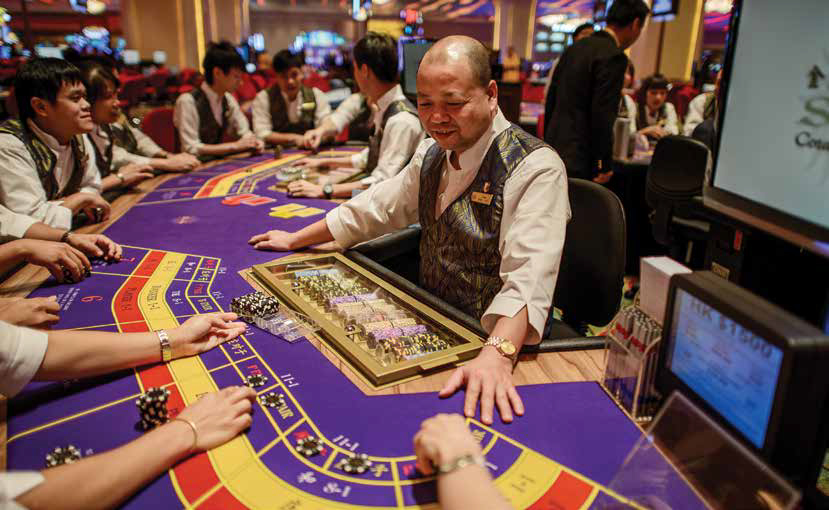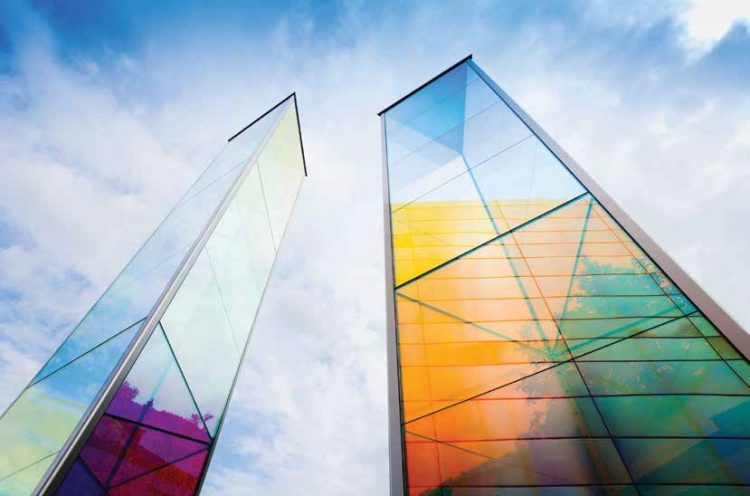The world’s six wealthiest territories per capita have been blessed with massive windfall gains of various forms, from abundant oil and gas reserves to an influx of super wealthy tax exiles in search of glamorous second homes, and, in Macau’s case, a tremendously lucrative monopoly on legal casino gaming in China. But rather than counting on the windfall to continue in perpetuity, all are seeking to diversify their economies and protect their wealth, though Macau seems to be lagging in that effort. So what can Macau learn from the others?
Macau’s economy is a one trick pony, albeit a supercharged one fed by the seemingly insatiable Chinese appetite to gamble. It’s been on a breathtaking gallop over the past decade, though it’s taken the occasional breather, including right now. But it won’t be long before it’s back at full stride, and it looks set to run strong for decades to come. As robust as the pony appears, however, there’s no guarantee it’ll generate perpetual growth despite the arguments about all that still untapped demand in China.
The danger is believing Macau is the only—or even the main— game in town as far as mainland Chinese are concerned. Competing ambitious casino resorts geared to Chinese players are opening up or are on the drawing boards from Manila to Sri Lanka, Vegas to Vladivostok and Seoul to the Great Barrier Reef, and there’s a danger Macau is starting to seem passé for many increasingly affluent Chinese travelers in search of ever more exotic travel destinations. Macau’s casinos also face constant political and economic risk. A new campaign or policy reversal from Beijing could take a bite out of the market at any time, and China’s highly leveraged economy could conceivably tank, taking Macau gaming revenues with it.
So, it’s prudent to diversify. The only five economies listed above Macau on the global ranking of GDP per capita have been working earnestly to lessen their reliance on their dominant industries or at least hedge for the future. The Macau government would do well to follow some of their examples.
MONACO: PARLAYING PRESTIGE
The principality of Monaco, a sovereign city-state on the French Riviera, takes pole position on the 2013 GDP per capita list, with $163,026, and in some ways, offers a model for Macau to emulate.
Like Macau, Monaco first achieved international notoriety by opening a casino. It’s reputed that the Casino de Monte-Carlo, founded in 1863, was devised as a means to raise cash to save the venerable ruling House of Grimaldi from bankruptcy.
It did much more than that, providing Monaco a kick-start to successfully follow through on a diligent economic diversification effort. Now, finance, commerce and tourism are the main pillars of its economy. Foreign companies drawn to Monaco by its low tax regime account for around 75% of the principality’s GDP. Tourism brings in another 15%. Small-scale, high-value-added, non-polluting industries such as cosmetics and biothermics also make a tangible contribution. The casinos, however, while continuing to serve as iconic tourist attractions, aren’t seeing much action these days. Gaming revenue across the five casinos operated by the government’s Monte Carlo SBM slid steadily following the 2008 financial crisis to US$223 million in fiscal year 2013. Cambodia’s NagaWorld does more than that, an indication that Europe’s high rollers just aren’t what they used to be. Even the Russian oligarchs, with their penchant for staging outrageous spectacles of conspicuous consumption, haven’t managed to reverse the decline.
Fortunately, Monaco’s economy has diversified far beyond gaming, and it’s managed that with a population that stood at a mere 37,831 in 2013. In Macau, by contrast, even with a population of 607,500 as of 31st December, it’s often claimed that the city doesn’t have enough manpower to shift its economy away from the allconsuming casinos. Furthermore, if Macau’s land shortage is such an insurmountable obstacle to setting up new kinds of businesses, consider Monaco covers a mere 2 square kilometers compared to Macau’s 30 square kilometers.
As a tourist draw, what the principality lacks in size it makes up for in romance and unrivalled elegance. Home of the famed Monaco Grand Prix, the best-known Formula 1 race in the world, the city has lost none of its cachet since the event debuted back in 1929—“an exceptional location of glamour and prestige,” as it is hailed by the Fédération Internationale de l’Automobile, the governing body for world motor sports. The devil-may-care attitude of the drivers defying death at every turn on its ancient, perilously narrow streets resonates with its fabulously wealthy denizens. In business, as in racing, the greatest glory is achieved by taking big risks while maintaining a cool head. Thus, the Monaco GP serves as a superlative marketing tool in defining the character of the city.
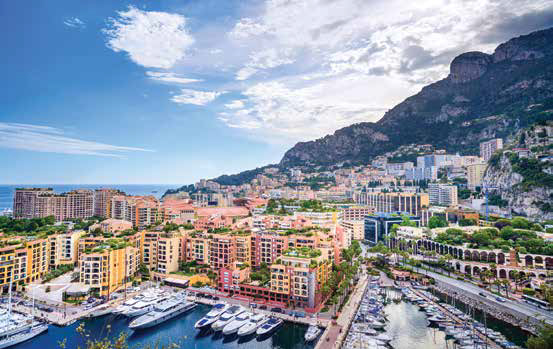
Macau introduced its own street-circuit Grand Prix much later, headlined by Formula 3 races. Though the Macau GP has emerged as an important event in its own right and raised the profile of F3, it simply doesn’t stand up to Formula 1, either in terms of horsepower or the buzz and glamor that surround it.
Of course, Monaco enjoyed such a strong and early start positioning itself as Europe’s leading playground for the über-rich it was a natural transition for it to become a second home or tax haven for many of them. According to the CIA World Factbook, Monaco has the highest number of millionaires and billionaires per capita in the world. And these are not kooky rich people with gambling compulsions who need to live close to a casino, because Monaco’s citizens are forbidden to set foot in its casinos.
American and Asian casino resort builders often speak of “critical mass”—build it and they will come, they say. Both Macau and Monaco rank alongside each other as the world’s most densely populated places. But critical mass can take different shapes. Europe’s sophisticates are inclined to steer clear of the hoi polloi within the garish, faux architecture of modern megaresorts. What they’re after is a destination replete with likeminded people— attractive, educated, worldly, with whom they can share their disdain for ordinary people.
For the Chinese coming to Macau, it’s mostly just baccarat they’re after, the more critical the mass, the better.
LIECHTENSTEIN: YOU’VE GOT a FRIEND
The similarities between Macau and Liechtenstein are few, except they are both short on natural resources. One key reason for Liechtenstein’s success is that it’s one of the few countries in the world with more registered companies than citizens. Business taxes are very low and registering a company is easy. That, together with its high rankings in quality-of-life surveys, has attracted companies from neighboring nations to come set up shop in this tiny German speaking country sandwiched between Switzerland and Austria.
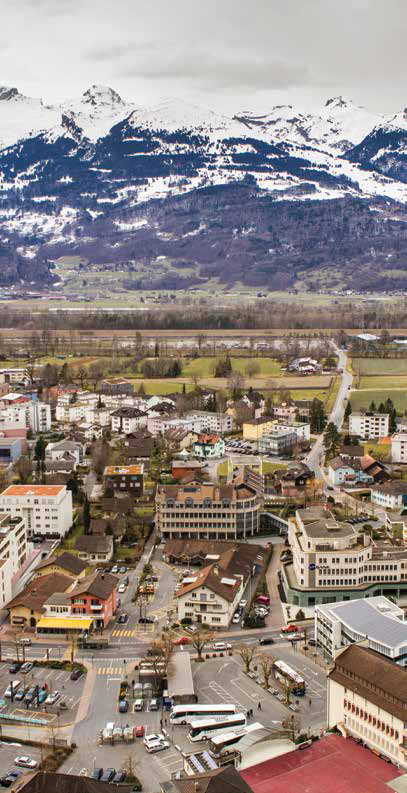
Liechtenstein is Europe’s fourth-smallest state. Its population is tiny—37,132 as of last year—but they’ve got 160 square kilometers of Alpine beauty to stretch their legs on. And the companies drawn to its favorable business environment have helped develop a prosperous, highly industrialized free-enterprise economy and robust financialservices sector.
Macau’s already got the low taxes, but it’ll need more to convince successful companies to relocate. The government will have to get its hands on more land for a start, either via reclamation or negotiating with Zhuhai authorities on leasing more land on neighboring Hengqin island. It also bears mentioning that the bar should be set high when letting companies in, preferably stipulating they hire and train locals to perform skilled work.
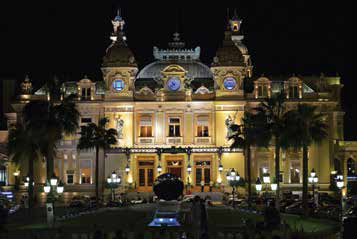
It won’t be an easy process, but if Liechtenstein’s example is any guide, it could prove worth it.
Before the casino boom of the last decade, Macau had actively invited foreign companies to set up branches in the city in an effort to create jobs and fill vacant office space at a time of significant overcapacity. The Macau branches of the foreign companies, which largely hailed from Hong Kong, functioned as little more than shell offices—a few desks manned by low-level administrative staff without much work to do—essentially tax dodges for their parent companies back home. But when Macau’s office rents, and wages, took off with the massive expansion of gaming, in conjunction with complaints from Hong Kong’s tax authorities, these shell companies were driven to find cheaper havens elsewhere.
LUXEMBOURG: THE VENEER of RESPECTABILITY
Luxembourg’s population of 549,680 is similar to that of Macau, and they both handle huge sums of money, but Luxembourg does it with the gravitas expected of the world’s second-largest investment fund center (after the US). Luxembourg is also the most important private banking center in the Eurozone and Europe’s leading center for reinsurance companies.
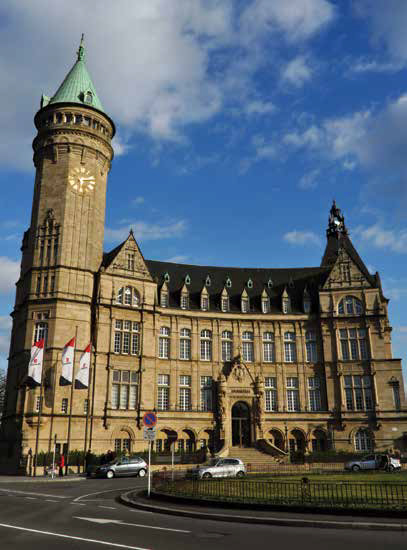
Until the 1960s, Luxembourg had actually focused on producing steel, then diversified into chemicals, rubber and other products. But it was financial services that really rocketed it onto the rich list. Now, the government has widened its focus to attract Internet companies, with Skype and Amazon among several tech giants that have shifted their regional headquarters there.
Macau does have a small and vibrant financial-services sector, but it’s always been overshadowed by Hong Kong. Macau opened up its banking sector to international competition in 1992, and now there are 29 banks operating in the city, 10 locally incorporated and 19 branches of overseas banks. There is potential for the sector to grow as the economy develops, infrastructure improves and Macau becomes better integrated into the larger Pearl River Delta region.
Macau’s financial sector suffered its highest-profile scandal in 2005 when US authorities froze the accounts of former North Korean leader Kim Jong-il at Banco Delta Asia, accusing the bank of engaging in money laundering and distribution of “superdollars” [very highquality counterfeits] for the government of the reclusive Communist country.
An audit by Ernst & Young commissioned by the Macau government found no evidence that the bank had facilitated money laundering, but the US Treasury Department still ordered all US banks and companies to sever ties with Banco Delta Asia.
North Korea, in the meantime, simply dispersed its funds under aliases into several overseas accounts at different banks in Asia, Europe and Central America. And, lo and behold, in March 2010, Britain’s The Sunday Telegraph reported that Kim Jong-Il had moved $4 billion into secret accounts at banks in Luxembourg.
NORWAY, QATAR: UMBRELLAS for a RAINY DAY
In the second half of 2003, Beijing opened the floodgates leading to a gush of gambling-hungry mainland Chinese into Macau’s casinos. The equivalent in Norway or Qatar would have been striking that first rich and seemingly inexhaustible vein of oil or natural gas.
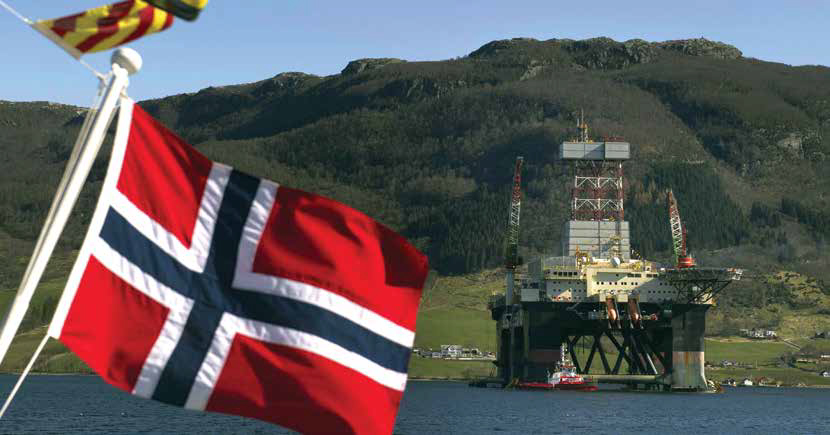
When money flows in so easily, there’s a danger of becoming complacent and putting off planning for the future. In Qatar’s case, where gas reserves are forecast to last more than 200 years at current production levels, it’s a future we won’t live to see. But there are always unforeseen contingencies. Natural or man-made disasters, possibly, or a seismic shift in clean energy production. Interestingly, Qatar has made investment in renewable resources a major goal for the country over the next two decades.
Both Norway and Qatar have set up sovereign wealth funds that collect surplus oil and gas revenues. Norway’s astutely managed SWF was founded in 1990 and has become the largest in the world, with reported assets of $890 billion at the end of June—that’s $178,000 for every Norwegian, all 5 million of them. And the fund holds about 1% of all stocks and bonds in the world.
Qatar’s SWF, set up in 2005, is worth $170 billion. As of 2014, it has investments around the world in Valentino, Siemens, Printemps, Harrods, The Shard, Barclays Bank, Heathrow Airport, Paris Saint- Germain F.C., Volkswagen, Royal Dutch Shell, Bank of America, Tiffany, Agricultural Bank of China, Sainsbury’s, BlackBerry and Santander Brasil.
But far from merely saving for rainy days, these funds are creating wealth and supporting diversification—Qatar’s investment in renewables technology being a notable example, seemingly ironic, but an eminently prudent hedge.
Macau’s fiscal reserves are expected to reach 350 billion patacas (US$43.8 billion) by the end of this year. The International Monetary Fund suggests the government use that to set up a SWF in order to protect the city’s economy from future headwinds such as slowing gaming revenues, increased social spending arising from an aging population and structural reforms in mainland China. Anselmo Teng of the Macau Monetary Authority responded, “It’s one of the options.”
But setting up a SWF has the potential to do a lot more than invest the reserves in different financial instruments. It could actually spur the diversification of the economy by helping to develop existing industries and potentially create new ones.
Singapore’s SWF, The Government of Singapore Investment Corporation (GIC), founded in the 1970s, has assets of US$320 billion and offers a compelling model for Macau to follow—Singapore actually has two SWFs, the second, Temasek Holdings, is worth $177 billion.
GIC is considered one of the world’s leading financial institutions, only employing the most exceptional candidates. Macau must certainly have its share of academically inclined young people who’d be in their element analyzing investments and structuring complex deals, but they’re lost in the hustle of the casino floor. A Macau SWF would give them a shot at pursuing careers in which they could thrive.
By necessity, the top posts at Macau’s SWF would initially go to foreign talent, but there’d be a clear mandate that it recruit and cultivate the best and brightest aspiring fund managers from within the city—talent that might be lost otherwise to investment banks overseas.

Many fledgling Singapore financiers have passed up on jobs with the likes of Goldman Sachs and Merrill Lynch to work for GIC, opting for the diversity and the challenge and the opportunity to serve one’s country. After all, while many employees are enamored of big-name employers, some canny ones understand the value of being part of a small outfit. As touched upon in this issue’s cover story, smaller companies are often able to make quick, decisive moves to capitalize on opportunities. And such environments breed innovation. In September, GIC sent shivers through smaller financial firms by announcing it was taking the unusual step of investing directly in unlisted firms—essentially subsuming a function previously only performed by private equity.
Macau’s leaders and citizens have repeatedly been told from on high to diversify the economy, but haven’t been given any clear direction on how to do that. So, the choice is either do nothing, or try experimenting, possibly breaking with convention.
A Macau SWF would support further development of the local financial sector, which has been itching to grow in line with the economy. Critical mass, that old chestnut, will draw more financial talent to the city, and though Macau could never hope to compete with the might of neighboring Hong Kong’s financial sector, there’s certainly room to offer more wealth management services to people in Macau.
It would be a boon to Macau’s diversification if there were some venture capitalists among the professionals drawn to the city by the newfound critical mass of its financial sector. Macau suffers a dearth of professional business incubators to mentor promising startups and help guide their ideas from concept stage to final product. Indeed, if Macau’s SWF were intent on being maverick and exploring all possibilities, it could even choose to dabble at the venture capital stage on a handful of worthy concepts proposed by budding local entrepreneurs.
In Hong Kong, leading corporations offer hotly contested scholarships to exceptional students headed for top universities worldwide, with the stipulation that they return after graduating and work for the company—receiving an attractive salary—for a set period. Generally, the returning students end up working for the companies long beyond the agreed period, and sometimes for life. Macau’s SWF could offer a similar scheme, sending gifted students to Harvard or Oxford who on their return would be fresh with enthusiasm and ideas to come up with revolutionary approaches to managing Macau’s wealth and driving the city’s much-needed diversification.
THE END of DRUDGERY
The world’s top six countries by GDP per capita have relatively small populations. Norway, with 5 million, is by far the largest. Qatar comes next with 1.8 million, though only 278,000 of those are classified as citizens, with a further 1.5 million foreign workers, largely hailing from the Indian subcontinent and the Philippines, brought in to do the grunt work. Macau, with 607,500 is not far off Luxembourg’s 543,202. And the populations of Monaco and Liechtenstein don’t even break the 40,000 mark (though 48,000 workers commute daily to Monaco from France and Italy).
It’s no surprise that places endowed with precious resources— whether rich energy deposits or lucrative gaming licenses—achieve higher GDP per capita when the takings are divided among smaller populations. But you need workers to exploit those resources. Qatar’s solution was to bring in migrant workers from poor countries willing to do the hard work for low wages.
In Macau, there’s no messy oil to be extracted or dangerous manufacturing to be done. When it comes to a front-of-house role in a casino, dealing cards is pretty much the main drudge work available. But, perversely, the knee-jerk political impulse to protect Macau citizens led to dealer jobs becoming the sole preserve of locals, and so the city has fallen into a trap that is dumbing down the population and could have other long-reaching negatives consequences. It would have been better to take the short-term pain and open dealer jobs to workers around the region and allow wages to fall to levels sufficient to draw low-skilled workers with the requisite skills from China, who arguably would do their jobs with more enthusiasm and aplomb than many of the locals are demonstrating.
The locals should instead have been protected by reserving more senior positions for them, with the government providing comprehensive training and development programs. There would certainly be displacement, but in the long term you’d boost the value of the local workforce.
Yet, even as a short-term fix, the ban on non-locals working as dealers has failed. It did push up the wages of this low-skilled occupation, and Macau’s median monthly income has risen in step, but that median income remains woefully low by developed world standards, and especially low compared with the wealthiest nations. It’s also failed to keep up with soaring house prices.
Obviously, a sudden policy reversal to allow non-locals to work as dealers would be seriously destabilizing. Rather, it needs to be done discretely over a long time frame (say a decade), and in conjunction with the gradual creation of new high-value industries, within which jobs are preferentially awarded to locals, while migrant workers are quietly brought in to fill the dealer spots that will consequently open up. As more time passes, Macau’s dealer wages could eventually be determined by the wider free market, consisting of the massive pool of unskilled workers living in poor countries around the region (notably China and the Philippines), which could potentially bring down dealer wages to one-quarter of current levels. Then locals would naturally migrate to the high-paid non-dealer jobs, and casinos would have no problem obtaining enough dealers to man their tables.
It’s a long-term plan, but the groundwork needs to be laid now.
